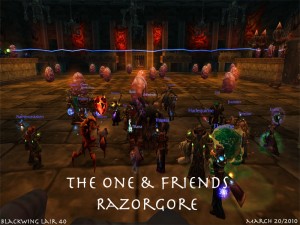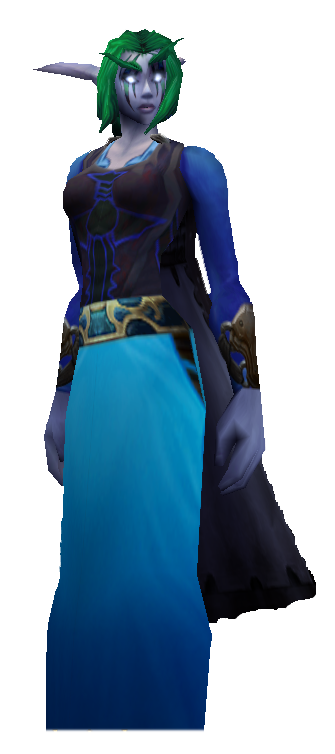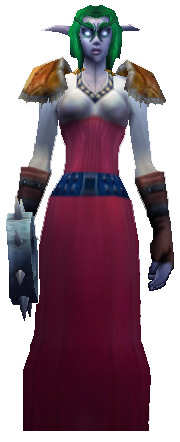I’m now in week two of my first survey into learning, communities of practice, and World of Warcraft in support of my doctorate. The first part of the survey is collecting some in-game demographic details, such as how long people have played, what their first character was, favourite professions, etc. The meat of the survey, however, is a short answer question about why people play World of Warcraft.
I am still looking for additional responses and the survey is scheduled to close at the end of this weekend (April 18th). If you play World of Warcraft or know other players, I would be grateful if you could encourage them to visit the survey information page and participate. On completion, participants will be given a code to enter a draw for three Blizzard store pets as prizes.
Tweet, ask in guild, ask at university, or poke your workmates to pass the word along. Just remember that it’s only open to those 18 years or older as I’m interested in examining adults and learning and there are restrictions on participation in things by those younger than 18.
Thanks!




 As part of a course under development at The Open University, I was approached as a known World of Warcraft player and asked to write a short paragraph or two on why I play World of Warcraft. I freely admit to failing to only write a short paragraph or two, but that’s probably because I’m passionate about World of Warcraft and my activities in it, especially given the prominence it plays in my life in so many areas. Read on to find out why I play World of Warcraft.
As part of a course under development at The Open University, I was approached as a known World of Warcraft player and asked to write a short paragraph or two on why I play World of Warcraft. I freely admit to failing to only write a short paragraph or two, but that’s probably because I’m passionate about World of Warcraft and my activities in it, especially given the prominence it plays in my life in so many areas. Read on to find out why I play World of Warcraft. I have my annual Ph.D. review meeting tomorrow afternoon. As usual, I’m more than a bit nervous, especially as I made the big step this academic year of completely dropping my former Ph.D. work and starting a brand new topic that intersects the boundaries of my three main interests: communities, learning and teaching, and Internet-enabled technologies. As part of the review process, we’re asked to produce a 4-page report that explains what we’ve done since the last report. In your first year, this report ought to focus on your thesis proposal, although many students won’t yet have one. I do have some ideas about what I want to do and how I am going to go about it. I’ve made an online version so that it will be indexed and easily findable by others interested in World of Warcraft and e-learning.
I have my annual Ph.D. review meeting tomorrow afternoon. As usual, I’m more than a bit nervous, especially as I made the big step this academic year of completely dropping my former Ph.D. work and starting a brand new topic that intersects the boundaries of my three main interests: communities, learning and teaching, and Internet-enabled technologies. As part of the review process, we’re asked to produce a 4-page report that explains what we’ve done since the last report. In your first year, this report ought to focus on your thesis proposal, although many students won’t yet have one. I do have some ideas about what I want to do and how I am going to go about it. I’ve made an online version so that it will be indexed and easily findable by others interested in World of Warcraft and e-learning. 



